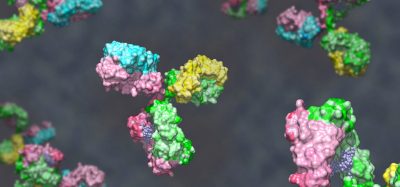Scientists explore an antibody approach for Klebsiella pneumoniae infections
Posted: 16 March 2018 | Drug Target Review | No comments yet
Researchers in the United States are investigating an alternative treatment to antibiotics for Klebsiella pneumoniae infections; the cause of a significant proportion of hospital-acquired illnesses.


Researchers are developing a promising alternative to antibiotic treatment for infections caused by Klebsiella pneumoniae bacteria that are resistant to carbapenem antibiotics. The approach uses antibodies to target the K. pneumoniae protective capsule polysaccharide, allowing immune system cells called neutrophils to attack and kill the bacteria. The early stage in vitro research was conducted by scientists at the National Institute of Allergy and Infectious Diseases’ (NIAID) Rocky Mountain Laboratories and the New Jersey Medical School at Rutgers University.
Klebsiella bacteria cause about 10 per cent of all hospital-acquired infections in the United States. A carbapenem-resistant K. pneumoniae strain known as multilocus sequence type 258 (ST258) is one of the antibiotic-resistant organisms labelled an urgent threat by the Centers for Disease Control and Prevention. ST258 is particularly concerning because it is resistant to most antibiotics and is a significant cause of mortality among people with bloodstream infections.
The researchers first determined that the bacterial capsule prevents immune system neutrophils from ingesting and killing ST258. They then extracted capsule from the two most abundant capsule types of ST258 and used them to generate antibodies in rabbits. In cell culture experiments they found that one of the antibodies enhanced the ability of neutrophils to ingest and kill bacteria. These results constitute a ‘proof of concept’ for a potential immunotherapy approach for treatment of multidrug-resistant K. pneumoniae infections, according to the authors.
Biomarkers aren’t just supporting drug discovery – they’re driving it
FREE market report
From smarter trials to faster insights, this report unpacks the science, strategy and real-world impact behind the next generation of precision therapies.
What you’ll unlock:
- How biomarkers are guiding dose selection and early efficacy decisions in complex trials
- Why multi-omics, liquid biopsy and digital tools are redefining the discovery process
- What makes lab data regulatory-ready and why alignment matters from day one
Explore how biomarkers are shaping early drug development
Access the full report – it’s free!
The next step for the researchers will be to test the therapeutic concept in mice. They also will compare immunisation with purified capsule polysaccharide as a preventive approach (active immunisation) versus the use of capsule-specific antibodies as a therapy (passive immunisation). Ultimately, they hope either antibody treatment alone or in combination with antibiotics could greatly improve care for people with multidrug-resistant K. pneumoniae infections.
Related topics
Antibodies, Disease Research








